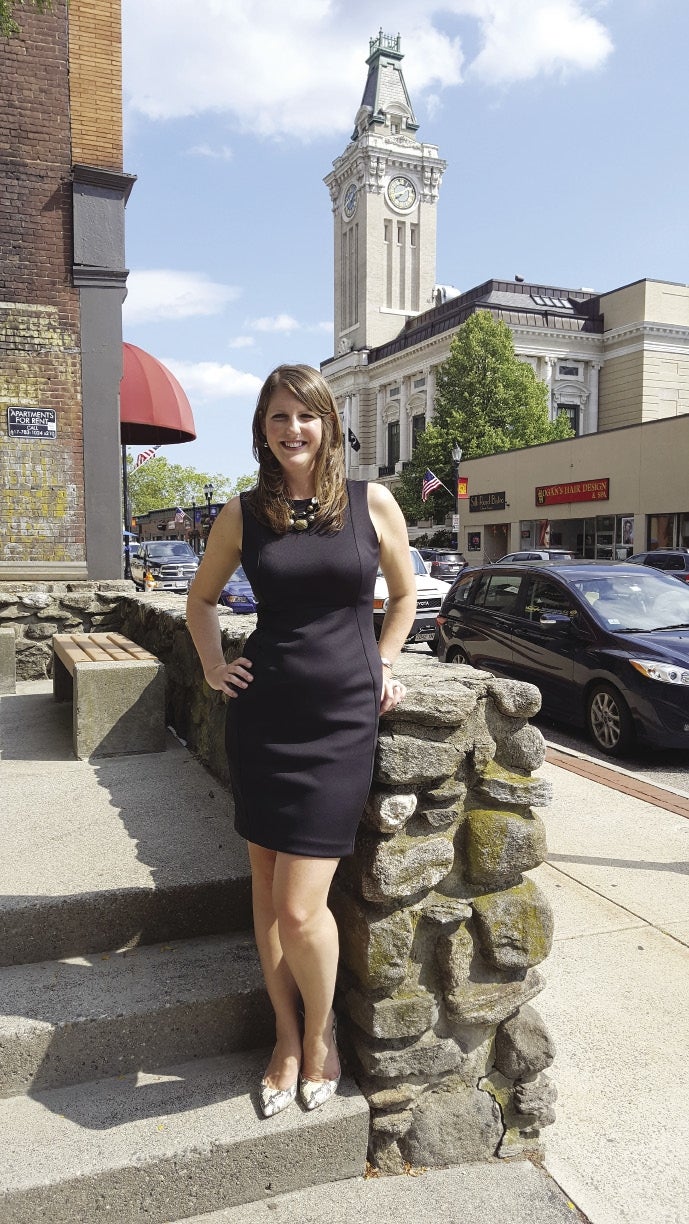
Meredith Harris’ predecessor helped convinced big fish like GE Healthcare Life Sciences and Quest Diagnostics to relocate to Marlborough, all while lowering the city’s vacancy rate by half to 18 percent and the office vacancy rate by nearly two-thirds to 11 percent. Now stepping permanently into the executive director role in August – she served on an interim basis since May and worked with the organization since July 2015 as its business outreach manager – Harris wants the MEDC to evolve to bolster all areas of the city, while still looking to land those major employers.
How has previous MEDC work laid the foundation for future success?
When other companies see companies like GE Healthcare, Quest Diagnostics, Hologic and TJX Corp. are coming here and doing well, it builds the momentum. More companies want to come to be part of the Marlborough story. We’ve had this huge increase in companies coming here, and people want to be part of that.
Do you expect more large employers to relocate to Marlborough?
We don’t have too many big blocks of space left in the city, which is good since the vacancy rate is going down. We do want to fill those big blocks that are left and build new big spaces in the city.
Still, we want to fill the smaller blocks.
We are looking at the different underutilized properties throughout the city to see what we can do moving forward.
Where are those underutilized areas?
We want to shift the focus in the near future to our downtown revitalization. The MEDC did a lot of work in 2014 on the downtown rezoning, and that is starting to pay off. There are a lot of developments coming to downtown, like apartment buildings. You are going to see people starting to live downtown, and you will see downtown as a destination where people visit here for their favorite restaurants and the downtown shops.
How do you convince business to fill those smaller spaces?
Last year, we developed the toolbox, which is different tools for smaller companies and startups. These are the companies that don’t need 100,000 square feet but still need some incentive to come in.
What is in the toolbox?
We have four different programs. We have the small business incentive program, which is similar to tax-incentive financing programs, but we tailored it to small businesses. We have a downtown rental assistance program, which is centered on the downtown area and offers rental assistance for a couple of months. We have the city-wide storefront beautification program for facade or street improvements.
The crown jewel of our toolbox is the revolving loan fund, which is a traditional financing program we established with four local institutions: DCU Federal Credit Union, Marlborough Savings Bank, Avidia Bank and St. Mary’s Credit Union. It is funds that are recycled: borrowers come in and as they repay the loan, money is available for other businesses.
What is your pitch to businesses?
The city is very business friendly. They want the companies to come. We have a mayor (Arthur Vigeant) that will welcome companies when they come in and spend time with them to get their feedback, to find out what they need. If we aren’t meeting those needs, we make sure we will.
What are some of those needs?
When we do talk to people, their biggest concerns are: Are we able to attract the talent? Is the infrastructure in place? How is the access? We found many of the larger and smaller companies don’t have the trouble attracting the talent. We are in a very good spot in the commonwealth, where we have easy access to the turnpike, I-495 and I-290, so it is easy to get to from all points north and south, east and west. We can attract talent from Boston and Worcester.
Out here, we like to think of the 495 belt like Route 128 was 20 years ago. It is starting to really grow, and we have a lot of amenities. People are starting to realize we have a lot of the things you can find on the 128 belt and in Boston.
How do you make Marlborough more like Boston and the 128 belt?
Transportation is also an issue that we are working on. We talk to some companies, and that is one of their concerns. Transportation is an issue in MetroWest, but it is not unavailable. There are transportation resources, and we are really trying to bolster that.
One of the big issues in the MetroWest area is the last-mile connection. You take a commuter rail out from Boston, there are not taxi cabs to get people that last mile to work. Also, once you are at work, how do you get out for lunch and other amenities? We are exploring different options, with services such as Lyft and Uber and maybe new bus routes.
Video

